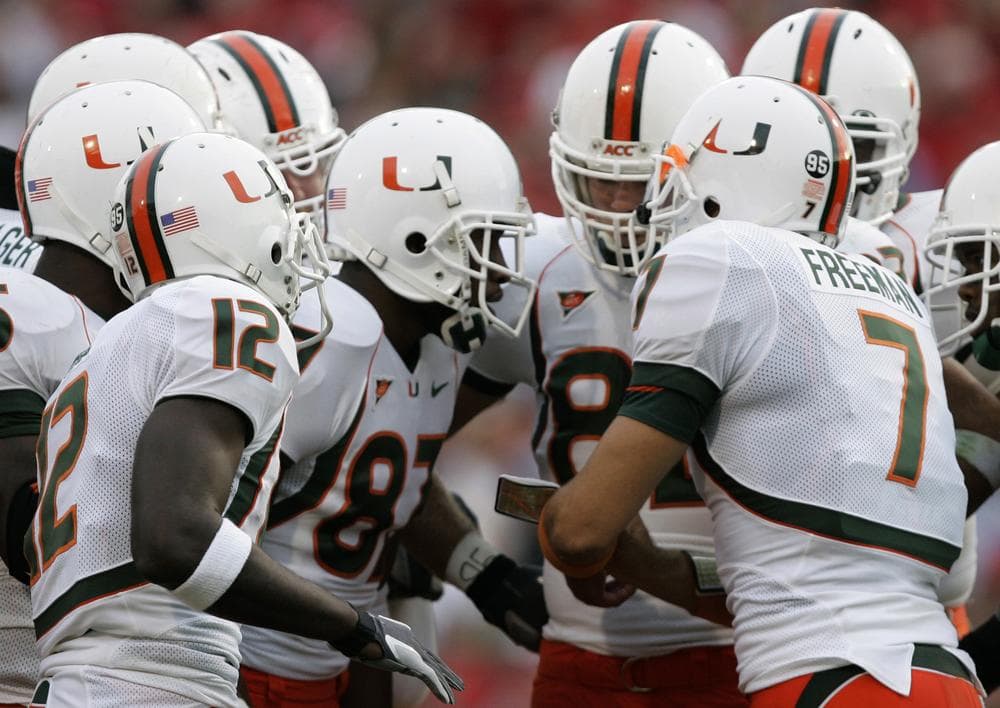Advertisement
In The News
Dan Wetzel: A Plan To Fix The NCAA
Resume
In a press conference on Wednesday, NCAA President Mark Emmert announced that the investigation into the University of Miami's athletics program has been put on hold after the NCAA learned that its own enforcement staff had improperly obtained information through a bankruptcy proceeding that did not involve the investigation.
At question is whether former Miami booster Nevin Shapiro, currently serving a 20-year term in federal prison for running a Ponzi scheme, violated several NCAA rules over an eight-year span.
Yahoo! Sports national columnist and Only A Game regular Dan Wetzel wrote about the story of the NCAA's investigation into Shapiro and Miami in August of 2011. This week, Wetzel told Bill Littlefield that the NCAA should drop the case.
"The core problem is they're trying to enforce rules which for over 100 years have proven to be unenforceable. And they're doing it based on a fallacy of what amateurism is and the fallacy that they can create a level playing field, or they even care about a level playing field, in sports," Wetzel said. "The NCAA is just trying to control the money and dodge taxes, and so they create this entire enforcement culture, which continually embarrasses them and is completely ineffective."
In a column published this week, Wetzel proposes allowing college athletes to court their own sponsors.
"It would work like the Olympics. If an athlete can get sponsored, then they can cut those deals. A guy like Johnny Manziel, the Heisman Trophy winner at Texas A&M, undoubtedly there's a car dealer in Houston that would love to have him in his commercial," Wetzel said. "Boosters could sponsor kids, fans [could do it], whatever. Money could go directly to the players not just through administrators who want to control that flow."
Wetzel points out that the International Olympic Committee made a similar change and the Games have continued to thrive.
"The Olympics did not fall apart because Usain Bolt doesn't have to live in poverty in Jamaica. He can get paid by Nike," Wetzel said. "In fact, the Olympics got better. [They] got healthier."
"I think it's important that people look at what amateurism is. Amateurism was created in the mid-1800s mostly by the upper-class wealthy in England, who had time to practice their sports - cricket, sailing," Wetzel said. "And they did not want the working class, who did not have time and had to work in factories six days a week, to have similar practice time and thus, be good. So what they did was they said nobody can get paid and hence, be able to quit your day job.
"Amateurism is a joke. It was designed to create an uneven playing field. Yet that's what the I.O.C. and then later, the NCAA clung to as a way to make a ton of money."
The NCAA routinely investigates all sorts of violations in all sorts of college athletics. The resulting penalties spark debate among coaches, athletes and fans, but Wetzel believes the issue of amateurism is the main problem and he says it's being overlooked.
"We're a long way from any real reform because there's still money involved, but the core issue has to be debated."
This segment aired on January 26, 2013.